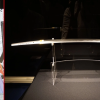
“FF gai kara shitsurei shimasu” has nothing to do with men or explaining.
So Mashable recently published an article with the headline “Japanese Twitter users figured out a polite way to mansplain,” which is itself a reaction to an article published by Kotaku about the expression “FF gai kara shitsurei shimasu.” Between Japan’s traditional ideas about gender roles and the stark difference in vocabulary and phrases used by men and women in speaking Japanese, Japanese society is often labeled as chauvinistic, but implying that “FF gai kara shitsurei shimasu” is used by people who want to “mansplain” (a sentiment expressed only in Mashable’s article, not Kotaku’s) is wrong on both fronts, since it carries no gender-related nuance and isn’t always necessarily coupled to an explanation.
Let’s take a look at the parts that make up the phrase. The FF in FF gai kara shitsurei shimasu (which is written in Japanese as FF外から失礼します) refers to Twitter followers and followees. Gai means “outside.” It’s the same gai as in gaijin, literally “outside person,” the Japanese word for “foreigner.” Kara means “from,” and, finally, shitsurei shimasu means “excuse me” or “pardon me.”
Put it all together, and all FF gai kara shitsurei shimasu means is “Pardon me for contacting you from outside of our Twitter follower lists.” It shows up all the time on viral tweet threads when a someone is replying to the person who sent the original tweet, but they don’t follow each other. While Japanese has plenty of unmistakably feminine and masculine grammar structures an vocabulary, FF gai kara shitsurei shimasu is gender-neutral, and you’ll see it used with equal frequency by male and female Twitter users, regardless of whether the reply is being sent to a man or woman.
FF gai kara shitsurei shimasu doesn’t have an inherent connection to the “’splaining” part of “mansplaining” either. The inclusion of the phrase is considered a polite courtesy whether you’re adding information of your own, asking a follow-up question, or even just voicing your reaction to the original tweet. As a matter of fact, Mashable’s own article includes the following example, which starts when Twitter user @doradai_friend tweets out his disappointment over some worthless loot he got in a mobile game.
https://twitter.com/kajikin_0524/status/902910897340874752Fellow gamer @kajikin_0524 then proposes an in-game item trade. He starts his message with FF gai kara shitsurei shimasu before going on to say “I’ll give you a cutlass if you’ll give me a crystal,” before ending with another shitsurei shimashita or ”excuse me for bothering you.” As we can see, there’s no “explaining” at all going on in @kajikin_0524’s message.
Even if we’re not using “mansplaining” with its original implication of a man talking down to a woman, and just using it to mean any one person condescendingly conveying what they believe to be indisputable truths, FF gai kara shitsurei shimasu still doesn’t fit with the practice. The emotion behind FF gai kara shitsurei shimasu is the exact opposite of arrogance. It’s literally asking forgiveness for being so bold as to offer your thoughts or opinion.
So to reiterate, no, Japanese Twitter users did not figure out a polite way to mansplain. They simply figured out a polite way to communicate, and saddling that linguistic innovation with the “mansplaining” label is a misunderstanding of the mechanics behind it in multiple ways, and a disservice to the people who earnestly use it every day.
Sources: Mashable Asia via IT Media, Kotaku USA via Mashable Asia
Top image: Pakutaso
Follow Casey on Twitter, where he’s laid back enough that he doesn’t mind if you skip the FF gai kara shitsurei shimasu.

 Is this common Japanese phrase for “goodbye” the reason for Japan’s crazy overtime hours?
Is this common Japanese phrase for “goodbye” the reason for Japan’s crazy overtime hours? Hit Japanese app Crabhouse forced to change name on iOS
Hit Japanese app Crabhouse forced to change name on iOS Say sayonara to “sayonara” – 70% of Japanese people don’t use this word for goodbye anymore
Say sayonara to “sayonara” – 70% of Japanese people don’t use this word for goodbye anymore Girls spotted crying in Tokyo’s Shibuya neighborhood for a startling, invisible reason
Girls spotted crying in Tokyo’s Shibuya neighborhood for a startling, invisible reason All-you-can-eat ramen being offered in Tokyo by one of Japan’s most popular chains!
All-you-can-eat ramen being offered in Tokyo by one of Japan’s most popular chains! Our reporter takes her 71-year-old mother to a visual kei concert for the first time
Our reporter takes her 71-year-old mother to a visual kei concert for the first time Is the new Shinkansen Train Desk ticket worth it?
Is the new Shinkansen Train Desk ticket worth it? Beautiful new Final Fantasy T-shirt collection on the way from Uniqlo【Photos】
Beautiful new Final Fantasy T-shirt collection on the way from Uniqlo【Photos】 Disney princesses get official manga makeovers for Manga Princess Cafe opening in Tokyo
Disney princesses get official manga makeovers for Manga Princess Cafe opening in Tokyo Hey, Japanese taxi driver! Take us to your favorite restaurant in Tsuruga City!
Hey, Japanese taxi driver! Take us to your favorite restaurant in Tsuruga City! Randomly running into a great sushi lunch like this is one of the best things about eating in Tokyo
Randomly running into a great sushi lunch like this is one of the best things about eating in Tokyo Amazing exhibition of Japan’s legendary “cursed katana” is going on right now【Photos】
Amazing exhibition of Japan’s legendary “cursed katana” is going on right now【Photos】 Dodge the biggest problem of giving yourself a kanji name with these for-foreigner personal seals
Dodge the biggest problem of giving yourself a kanji name with these for-foreigner personal seals Real-life Rurouni Kenshin reverse-blade katana, forged by master swordsmith, now on display【Pics】
Real-life Rurouni Kenshin reverse-blade katana, forged by master swordsmith, now on display【Pics】 Starbucks releases a special sparkly tumbler in Japan to support diversity
Starbucks releases a special sparkly tumbler in Japan to support diversity We try out “Chan Ramen”, an underground type of ramen popular in the ramen community
We try out “Chan Ramen”, an underground type of ramen popular in the ramen community New Studio Ghibli bedding sets are cool in all senses of the word
New Studio Ghibli bedding sets are cool in all senses of the word Our Japanese reporter visits Costco in the U.S., finds super American and very Japanese things
Our Japanese reporter visits Costco in the U.S., finds super American and very Japanese things Foreign English teachers in Japan pick their favorite Japanese-language phrases【Survey】
Foreign English teachers in Japan pick their favorite Japanese-language phrases【Survey】 New Pokémon cakes let you eat your way through Pikachu and all the Eevee evolutions
New Pokémon cakes let you eat your way through Pikachu and all the Eevee evolutions There’s a park inside Japan where you can also see Japan inside the park
There’s a park inside Japan where you can also see Japan inside the park Japanese convenience store packs a whole bento into an onigiri rice ball
Japanese convenience store packs a whole bento into an onigiri rice ball Hanton rice — a delicious regional food even most Japanese people don’t know about, but more should
Hanton rice — a delicious regional food even most Japanese people don’t know about, but more should Final Fantasy, Kingdom Hearts, and Dragon Quest pet product line announced by Square Enix
Final Fantasy, Kingdom Hearts, and Dragon Quest pet product line announced by Square Enix Studio Ghibli releases Kiki’s Delivery Service chocolate cake pouches in Japan
Studio Ghibli releases Kiki’s Delivery Service chocolate cake pouches in Japan Japan’s bone-breaking and record-breaking roller coaster is permanently shutting down
Japan’s bone-breaking and record-breaking roller coaster is permanently shutting down New definition of “Japanese whiskey” goes into effect to prevent fakes from fooling overseas buyers
New definition of “Japanese whiskey” goes into effect to prevent fakes from fooling overseas buyers Foreign passenger shoves conductor on one of the last full runs for Japan’s Thunderbird train
Foreign passenger shoves conductor on one of the last full runs for Japan’s Thunderbird train Kyoto bans tourists from geisha alleys in Gion, with fines for those who don’t follow rules
Kyoto bans tourists from geisha alleys in Gion, with fines for those who don’t follow rules Studio Ghibli unveils Mother’s Day gift set that captures the love in My Neighbour Totoro
Studio Ghibli unveils Mother’s Day gift set that captures the love in My Neighbour Totoro Domino’s Japan now sells…pizza ears?
Domino’s Japan now sells…pizza ears? Toyota built a life-sized Miraidon Pokémon and are letting people test drive it this weekend
Toyota built a life-sized Miraidon Pokémon and are letting people test drive it this weekend New Japanese KitKat flavour stars Sanrio characters, including Hello Kitty
New Japanese KitKat flavour stars Sanrio characters, including Hello Kitty Sales of Japan’s most convenient train ticket/shopping payment cards suspended indefinitely
Sales of Japan’s most convenient train ticket/shopping payment cards suspended indefinitely Sold-out Studio Ghibli desktop humidifiers are back so Totoro can help you through the dry season
Sold-out Studio Ghibli desktop humidifiers are back so Totoro can help you through the dry season Japanese government to make first change to romanization spelling rules since the 1950s
Japanese government to make first change to romanization spelling rules since the 1950s Ghibli founders Toshio Suzuki and Hayao Miyazaki contribute to Japanese whisky Totoro label design
Ghibli founders Toshio Suzuki and Hayao Miyazaki contribute to Japanese whisky Totoro label design Doraemon found buried at sea as scene from 1993 anime becomes real life【Photos】
Doraemon found buried at sea as scene from 1993 anime becomes real life【Photos】 Tokyo’s most famous Starbucks is closed
Tokyo’s most famous Starbucks is closed One Piece characters’ nationalities revealed, but fans have mixed opinions
One Piece characters’ nationalities revealed, but fans have mixed opinions We asked a Uniqlo employee what four things we should buy and their suggestions didn’t disappoint
We asked a Uniqlo employee what four things we should buy and their suggestions didn’t disappoint Princesses, fruits, and blacksmiths: Study reveals the 30 most unusual family names in Japan
Princesses, fruits, and blacksmiths: Study reveals the 30 most unusual family names in Japan Studio Ghibli’s new desktop Howl’s Moving Castle will take your stationery on an adventure
Studio Ghibli’s new desktop Howl’s Moving Castle will take your stationery on an adventure Taco Bell Osaka branches now selling okonomiyaki burritos, promise delicious fusion flavor
Taco Bell Osaka branches now selling okonomiyaki burritos, promise delicious fusion flavor Shibuya locks down Hachiko statue for Halloween 2023 while Burger King Center Gai shuts its doors
Shibuya locks down Hachiko statue for Halloween 2023 while Burger King Center Gai shuts its doors Simulation shows the chaotic consequences of walking in Shibuya while staring at your phone
Simulation shows the chaotic consequences of walking in Shibuya while staring at your phone Final Fantasy XIV x Isetan collection includes moogle soap, job bracelets, and crystal candy
Final Fantasy XIV x Isetan collection includes moogle soap, job bracelets, and crystal candy Mr. Sato angers the potato gods of Kogane No Potatorado restaurant
Mr. Sato angers the potato gods of Kogane No Potatorado restaurant Japan’s new Pokémon donuts are here, so let’s eat Pikachu, Chansey, and some Poké Balls【Photos】
Japan’s new Pokémon donuts are here, so let’s eat Pikachu, Chansey, and some Poké Balls【Photos】 Modern-day samurai patrolling Tokyo’s streets to fight against the evils of littering 【Video】
Modern-day samurai patrolling Tokyo’s streets to fight against the evils of littering 【Video】 Hanazono Jinja Shrine: Lanterns, stalls and rakes at annual Tori no Ichi cock festival in Tokyo
Hanazono Jinja Shrine: Lanterns, stalls and rakes at annual Tori no Ichi cock festival in Tokyo Sweating, snuggling models and voice actresses steam up series of spicy ramen ads 【Videos】
Sweating, snuggling models and voice actresses steam up series of spicy ramen ads 【Videos】 Roll cake-headed town mascot character attacked by group of men, woman inside injured
Roll cake-headed town mascot character attacked by group of men, woman inside injured Six of the “20 Coolest Arcades in the World” are in Japan! Want to know what Japan makes of that?
Six of the “20 Coolest Arcades in the World” are in Japan! Want to know what Japan makes of that? Rising Pokémon star Eevee gets her own official dance for the Project Eevee theme song 【Video】
Rising Pokémon star Eevee gets her own official dance for the Project Eevee theme song 【Video】 Business trends suggest young Japanese people just aren’t into jeans any more
Business trends suggest young Japanese people just aren’t into jeans any more Japanese bag looks like it’s spouting random English, but has an actual message
Japanese bag looks like it’s spouting random English, but has an actual message Dateless on Christmas? Burger King Japan invites you to celebrate with whole bucket of fast food
Dateless on Christmas? Burger King Japan invites you to celebrate with whole bucket of fast food McDonald’s Japan gives us a taste of the anime world with new series of Gundam burgers
McDonald’s Japan gives us a taste of the anime world with new series of Gundam burgers
Leave a Reply